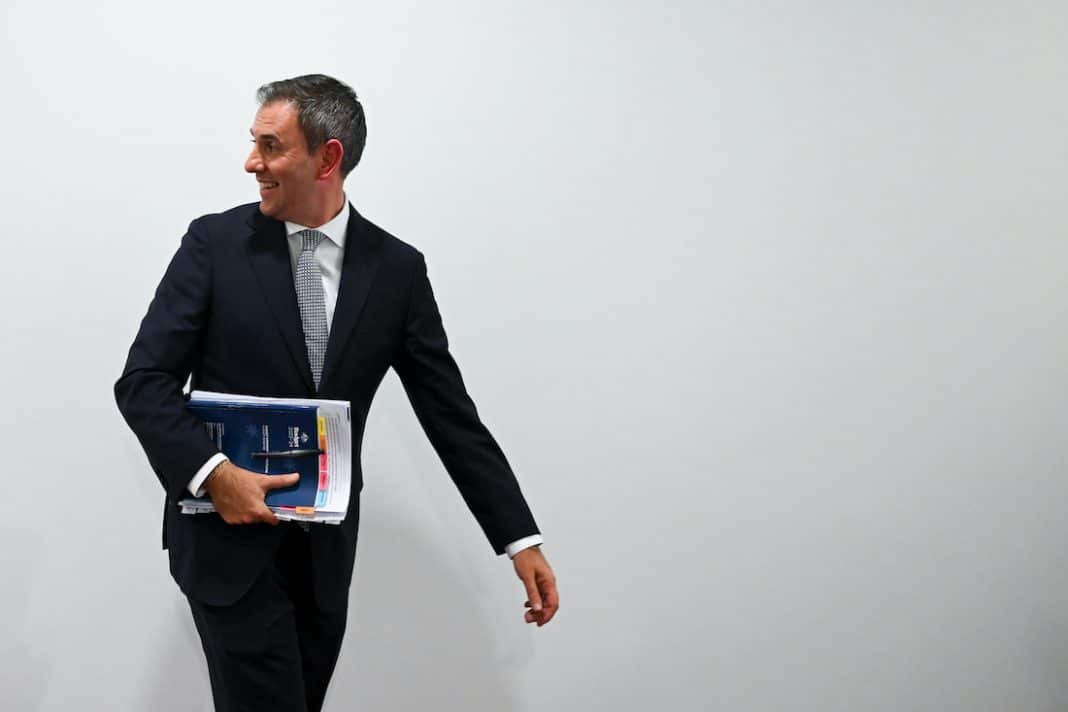Treasurer Jim Chalmers is playing down the prospect of a second consecutive budget surplus, saying a complex balancing act is needed due to structural challenges.
The government expects to book a $4.2 billion underlying cash surplus in this financial year – the first in 15 years.
This will be followed by a better-than-expected deficit of $13.9 billion in 2023/24.
Asked if a second surplus was on the cards instead, Dr Chalmers said on Wednesday he was taking a cautious approach.
“We’ve got this big improvement in revenues in the near term and we’ve taken the most responsible approach to that and that’s why we’re forecasting a surplus for this year,” he told Seven’s Sunrise program.
“But we’ve got some structural challenges in the budget. We made a heap of progress on those last night but there will be more work to do.”
Dr Chalmers emphasised the 2023/24 budget was about helping people doing it tough and again rejected concerns a near $15 billion cost of living package could fuel inflation and lead to more interest rate rises by the Reserve Bank of Australia.
“It doesn’t all hit the economy at once … and broadly, across the economy, we don’t expect to be adding to inflationary pressures,” he said.
Asked if he planned to let through stage three tax cuts slated for 2024/25, at a cost of $69 billion over four years, Dr Chalmers said the government’s position hadn’t changed.
“They don’t come in for more than a year, they haven’t been a focus of the deliberations for this budget at all,”
Independent economist Chris Richardson said the budget lacked the hard decisions needed to allow the central bank to lean away from rate rises because it was pumping money into the economy.
“I had thought, after the surprise rate rise from the Reserve Bank (this) month, they were done and dusted. I’m less clear now that that’s the case,” he said.
When he handed down the budget on Tuesday night, Dr Chalmers said it had been carefully calibrated in terms of spending.
“The restraint we’ve shown and the investments in the supply side of the economy, and the way we’ve targeted and staged our cost of living package is because inflation is the biggest challenge in our economy,” he said.
Shadow treasurer Angus Taylor said the government had delivered “typical big-spending, big-taxing Labor budget”.
“We needed a budget that reduces inflation and reins in spending to combat the cost of living crisis facing all Australians,” he said.
“Instead, this budget makes life harder for Australians.”
Commonwealth Bank of Australia economists said the budget did not immediately jeopardise its forecast for inflation to return to the RBA’s target range of between two to three per cent by mid-2024.
“The move to surplus in 2022/23 represents a fiscal contraction that is helpful in moderating the inflation pulse through the economy,” the economists said.
“But the move back to deficit in 2023/24 represents a loosening of fiscal policy.”
Treasury expects the annual rate of inflation to be back in the band in 2024/25 when it’s forecast to fall to 2.75 per cent from six per cent this year.
By Poppy Johnston in Canberra



